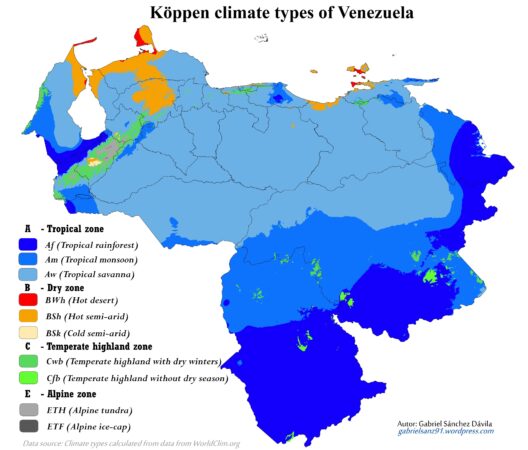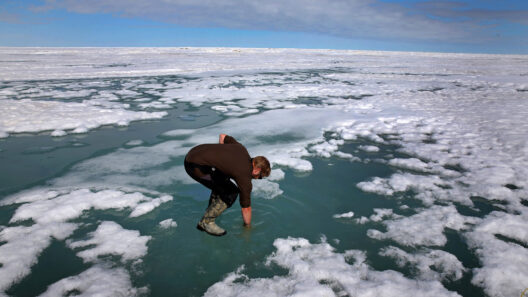Indonesia, an archipelagic nation acclaimed for its vibrant biodiversity and rich cultural heritage, finds itself precariously positioned on the precipice of ecological and economic adversity due to global warming. With its extensive coastline, tropical forests, and myriad of ecosystems, Indonesia is profoundly vulnerable to the repercussions of climate change. This exacerbates existing socio-economic challenges, thus necessitating a thoughtful and multifaceted approach to navigate the impending crises.
The substantial reliance of Indonesia’s GDP on agriculture, fisheries, and forestry renders these sectors especially susceptible to climatic perturbations. Elevated temperatures, erratic rainfall patterns, and prolonged droughts disrupt traditional agricultural cycles. Crops such as rice, Indonesia’s staple, suffer from reduced yields, which threatens food security and agrarian livelihoods. Farmers, most of whom operate smallholdings, are ill-equipped to adapt to these changes due to a lack of resources, information, or agricultural support systems. Consequently, there is an urgent need for innovation and investment in resilient agricultural practices to safeguard the food supply and bolster rural economies.
Beyond agriculture, Indonesia’s fisheries are facing existential threats from rising ocean temperatures and acidification. The coral reefs, which serve as the nursery for many marine species, are deteriorating at an alarming rate. This not only jeopardizes fish stocks but also endangers the communities dependent on fisheries for their livelihood. Enhanced awareness and strategic management of marine resources are essential to ensure the sustainability of this sector. Programs that promote sustainable fishing practices and coral rehabilitation could provide a pathway to stabilize both the economy and marine ecosystem.
Tourism, another cornerstone of the Indonesian economy, is equally vulnerable to the vicissitudes of climate change. Indonesia’s renowned landscapes, from the lush jungles of Sumatra to the majestic temples of Bali, attract millions of visitors annually. However, climate-induced phenomena such as rising sea levels, extreme weather events, and biodiversity loss could significantly diminish tourist appeal. Stakeholders in the tourism sector must advocate for sustainable practices, ensuring that development does not come at the expense of environmental integrity. Efforts to promote ecotourism can play a pivotal role in fostering a symbiotic relationship between economic growth and environmental preservation.
The financial implications of climate change extend beyond immediate economic sectors. The increasing frequency and severity of natural disasters necessitate substantial investment in disaster resilience and recovery. Indonesia is prone to earthquakes, floods, and volcanic eruptions, and climate change exacerbates these risks. Inadequate infrastructure and emergency responses can lead to catastrophic economic losses and displace thousands of individuals. Therefore, investing in climate-resilient infrastructure, including robust flood defenses, resilient housing, and early warning systems, is critical to mitigate damages and protect vulnerable populations.
Furthermore, Indonesia’s vast forests, which are among the most biodiverse on the planet, play a crucial role in carbon sequestration. Deforestation, driven largely by agricultural expansion and illegal logging, contributes to greenhouse gas emissions. This paradox presents an opportunity for Indonesia to engage in reforestation initiatives and sustainable land management practices. The concept of “green economies” is increasingly vital. Policymakers must integrate environmental conservation into economic strategies to create a sustainable framework that values ecological health alongside economic output. International cooperation and investment can catalyze funding for these sustainable initiatives, allowing Indonesia to harness its natural resources responsibly.
At an institutional level, Indonesia confronts significant governance challenges in addressing climate impacts. Corruption, bureaucratic inefficiencies, and inadequate policy implementation hinder effective climate action. Strengthening governance frameworks is imperative to enhance transparency, facilitate community engagement, and ensure the equitable distribution of resources. Empowering local communities to participate in decision-making processes can foster a culture of stewardship and accountability. Education is also vital; raising awareness about climate challenges and their implications can empower citizens to advocate for meaningful change.
Additionally, there is a growing recognition of the importance of renewable energy in mitigating climate change and promoting economic resilience. Indonesia has immense potential for renewable energy sources, including solar, wind, and geothermal. Transitioning towards a low-carbon economy by investing in renewable energy infrastructure can diversify the energy supply, enhance energy security, and generate new job opportunities. Frameworks that support clean energy projects must be prioritized, as they hold the promise of fostering sustainable economic growth while reducing greenhouse gas emissions.
As Indonesia navigates the multifaceted challenges of global warming, it is crucial to adopt an integrative approach that harmonizes environmental sustainability with economic development. Policymakers, private sectors, and civil society must collaborate to establish guidelines and frameworks that incentivize sustainable practices across various economic sectors. Harnessing traditional knowledge alongside innovative technologies could foster resilient communities capable of weathering climate-induced adversities. The journey towards navigating these challenges demands an unwavering commitment to fostering a resilient, inclusive, and sustainable Indonesian economy.
In summary, Indonesia stands at a critical juncture. The convergence of climate change and economic challenges presents an existential threat, yet it also offers an opportunity for systemic transformation. By embracing sustainability as a core principle in economic development, Indonesia can strive not only to mitigate the effects of global warming but also to emerge stronger, more resilient, and more equitable in its economic pursuits.







